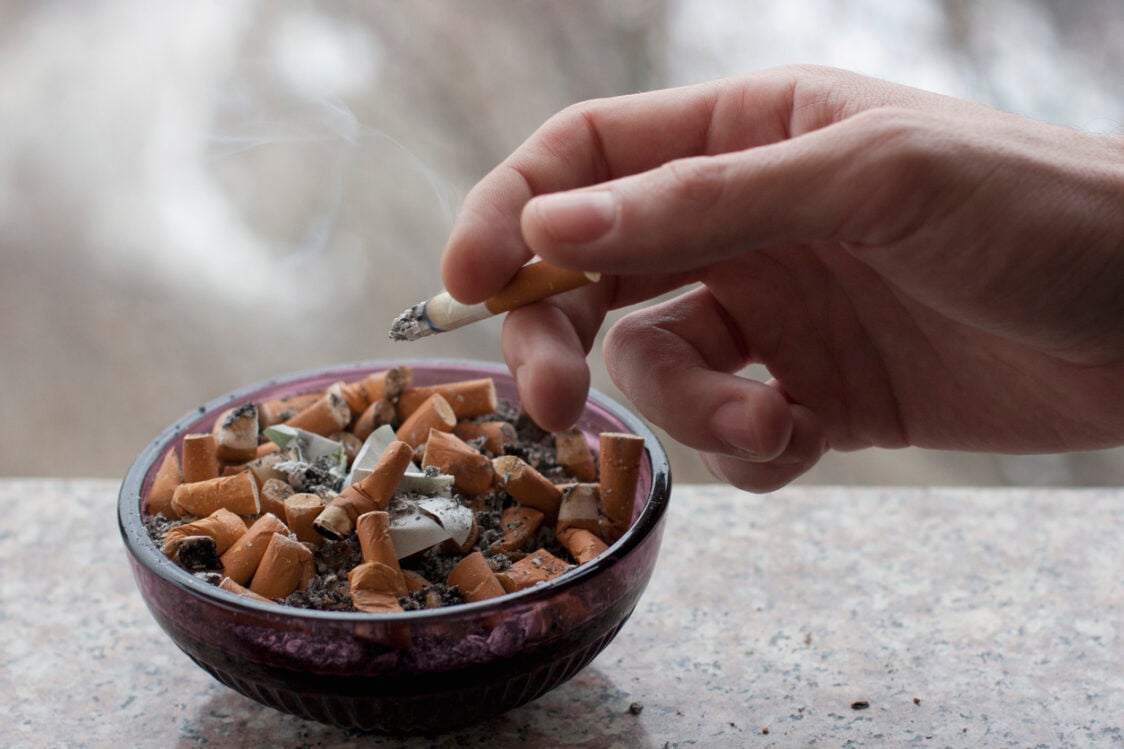Table of Contents
The recipe for a longer life is a highly debated and hot topic that has fascinated humanity for ages. Legends tell of pirates chasing after the Fountain of Youth, while on the internet, you can find various, sometimes bizarre theories claiming to help you live to be a hundred or more. However, the fact remains that despite advanced medicine, we have not yet found the magical key to immortality. Nevertheless, a positive fact is that average life expectancy is gradually increasing, and scientific knowledge is showing us more ways to live longer. We will delve into them further in this article.
A study focused on prolonging life
The pursuit of extended life was also the focus of a 2023 study. It observed over 700,000 military veterans aged 40 to 99, enrolled in the Veterans Affairs Million Veteran Program (MVP), designed to help researchers explore how lifestyle, genetics, and military experience can influence health and well-being. During the study, data from health records collected between 2011 and 2019 were utilized, with over 33,000 deaths recorded during the research. The study’s results revealed eight specific pillars that could potentially extend life by up to 24 years. These individual points were presented at the American Society for Nutrition meeting held in Boston on July 24, 2023. [1][51]
8 factors that can affect the length of life
The study titled Eight Modifiable Lifestyle Factors Associated With Increased Life Expectancy Among 719,147 U.S. Veterans specifically highlights these eight factors that, if followed, can lead to a longer life: [1][51]
- Not smoking
- Being physically active
- Not consuming an excessive amount of alcohol on a regular basis
- Maintaining good sleep hygiene
- Eating healthily
- Maintaining good social relationships
- Managing stress
- Avoiding opioid dependency
The analysis of participants’ health data revealed that the most significant negative impact on health came from an inactive lifestyle, smoking, and opioid use. These factors were associated with a 30 to 45% higher risk of mortality. Factors such as poor sleep hygiene, stress, and excessive alcohol consumption were responsible for a 20% higher risk. Insufficient social relationships were linked to a 5% higher risk of mortality. Throughout the study, 33,375 deaths were recorded, and for each participant who incorporated one of these mentioned factors into their life, researchers observed a reduction of a thousand deaths per person-year. The group of participants who adopted all eight factors was associated with a 13% reduced risk of death from all causes. Based on these findings, it is estimated that men aged 40 who adopt all eight factors could live up to 24 years longer. For middle-aged women, an additional 21 years of life are projected compared to women without these habits. [5]

Even the researchers themselves were surprised by the potential gains achievable by incorporating just one, two, or three of the eight lifestyle factors. Ideally, starting as early as possible is recommended, but research indicates that even small changes can be effective, and that’s including older individuals aged 50 or 60 as well. This suggests that it is never too late to adopt a healthier lifestyle. [53]
Below, we will delve into each of the individual factors in more detail, explaining how they can influence quality and length of life by up to 24 years.
1. Smoking
The notion that smoking is detrimental to health has been around practically forever. Despite this, many people still regularly indulge in this habit, which can negatively impact not only the quality but also the length of life. Smoking leads to various diseases and damages nearly every organ of the body. It is a well-known carcinogen responsible for over 15 types of cancer, including lung, esophageal, pancreatic, and throat cancer. Additionally, it causes heart diseases, stroke, and chronic obstructive pulmonary disease (COPD). It increases the risk of diabetes, tuberculosis, certain eye conditions, and immune system problems. [4 – 6]
Smoking and Health from a Scientific Perspective
Claims about the negative impact of smoking on our health are supported by various studies and statistics, which state that [4 – 6]:
- More women die from lung cancer annually than from breast cancer
- Smoking increases the risk of death
- Smoking is the leading cause of cancer worldwide
- Even smoking just one cigarette a day increases the risk of ischemic heart diseases and stroke, with no safe level of smoking in relation to cardiovascular diseases.
According to WHO statistics, tobacco kills up to half of its users. As a result, around 8 million people die each year due to smoking, including 1.3 million non-smokers who are regularly exposed to second-hand smoke. All these are compelling reasons to either never start smoking or to quit today. [2 – 3]

How to Quit Smoking?
Quitting smoking can be challenging, especially for heavy smokers. Nevertheless, it is possible and is one of the best things you can do for your health. According to the UK’s National Health Service (NHS), there are several ways to quit smoking. Nicotine patches and other aids can help alleviate nicotine cravings and withdrawal symptoms. WHO even offers an Artificial Inteligence (AI) called Florence on their website, designed to help people quit smoking and provide advice on healthy lifestyle and mental health.
In more challenging cases, seeking professional help is generally recommended, as it significantly increases the chances of quitting for good. Whatever method you choose, self-discipline will undoubtedly be necessary to persevere on this demanding journey. The outcome will not only benefit your health but also your wallet, given the ever rising cost of tobacco products. [7]
You might be interested in these products:
2. Physical Activity
In today’s modern society, a sedentary lifestyle is one of the silent killers. It involves a lifestyle oriented towards sitting and lying down, whether at home or at work, which has very low energy expenditure and is not compensated by sufficient movement or physical activity. While such a lifestyle may seem comfortable at first glance, it significantly contributes to the development of various chronic diseases.
Lack of physical activity can lead to:
- Obesity
- High levels of bad cholesterol (LDL)
- Higher risk of depression and anxiety
- High blood pressure
- Stroke
- Certain types of cancer, including breast and colon cancer [8]
A sedentary or inactive lifestyle can also result in a deterioration of your fitness and a decline in the performance of your cardiovascular and respiratory systems. Muscles atrophy, weaken, and can even shorten. A secondary aspect is that you burn fewer calories, increasing the likelihood of weight gain. This also exposes you to the risk of bone weakening and can lead to a loss of muscle mass and endurance, as muscles are not utilized often enough. [8]

Sedentary Lifestyle from a Scientific Perspective
Claims about the negative impact of a sedentary lifestyle on our health are supported by various studies, which indicate that [9 – 11]:
- High levels of sedentary behavior are unfavorably associated with health status.
- Reducing or eliminating sedentary behavior can be beneficial for body composition and markers of cardiometabolic risk.
- Sedentary lifestyle is associated with an increased risk of premature death.
- Lack of physical activity and a sedentary lifestyle are linked to a higher risk of depression.
If you frequently sit at work or school and your daily routine involves very little movement, it’s definitely worth considering a change given the aforementioned aspects.
How to do More Sports and Exercise?
According to the WHO, each individual should engage in at least 150 minutes of moderate-intensity physical activity or 75 minutes of high-intensity activity per week. If you’re accustomed to a sedentary lifestyle, transitioning to a more active one may initially be a bit challenging, but it’s certainly not impossible. To fulfill WHO’s recommendation, you can aim to move for 30 minutes a day, 5 days a week, which doesn’t sound overly demanding. [12]
Especially when you consider the numerous benefits of exercise that can enhance your life. These bold claims are also supported by studies that show that [13 – 16]:
- Physical activity, such as running, can significantly lower blood pressure
- Endurance activities like walking, jogging, or cycling can reduce LDL cholesterol and increase HDL cholesterol
- Physical activity reduces the risk of up to 13 types of cancer
- Moderate-intensity aerobic exercise or high-intensity strength training can improve sleep quality and accelerate falling asleep
Engaging in more sports and exercise can be aided by small changes in your life. If you spend a lot of time sitting at work, remember to take regular breaks and stand up and walk a few steps every now and then. Additionally, consider replacing the elevator with stairs or parking your car a bit farther away to take a short walk.

You can also start exercising with short full-body workouts. For inspiration, you can use our overview of bodyweight exercises or exercises with resistance bands. Initially, you don’t even need to rush to the gym; you can start training at home. And you never know how your efforts might pay off. Over time, you may come to love physical activity and take it to a new level with a quality training plan, which could help improve your physique and boost your self-confidence. Alongside the health benefits of movement, this can be a great mental bonus.
If you’re interested in more benefits of physical activity, be sure to check out our article Why Exercise and Work Out? Stronger Immunity, Heart, and 8 More Reasons.
3. Excessive Alcohol Consumption
Alongside cigarettes, alcohol is one of the most common habits that damage our health and consequently shorten our lifespan. Long-term excessive alcohol consumption can lead to the development of chronic diseases and other serious problems. Examples include high blood pressure, heart diseases, stroke, liver diseases, and memory issues. Alcohol is also responsible for diseases such as colorectal, rectal, and liver cancer, weakened immune system, and worsened mental health. All of these factors can significantly contribute to reducing the lifespan of an individual. [17]
According to the World Health Organization (WHO), excessive alcohol consumption is one of the adverse factors that can lead to more than 200 different diseases. Globally, around 3 million people die each year due to harmful alcohol consumption. The negative statistics even affect young people, with WHO reporting that approximately 13.5% of all deaths among individuals aged 20-39 are alcohol-related. [18]

Excessive Alcohol Consumption and Health from a Scientific Perspective
Claims about the negative impact of alcohol on our health are also supported by various studies, which indicate that [19 – 21]:
- According to the American Cancer Society, alcohol contributes to over 75,000 cases of cancer annually and is responsible for nearly 19,000 cancer-related deaths
- Daily alcohol consumption at levels of 30 to 50 grams over five years can cause liver diseases
- Alcohol is attributed to negative health effects such as drowsiness, weakness, memory disorders, and impaired perception. It is also considered a risk factor for most chronic diseases
All of these mentioned health aspects are strong reasons why alcohol should be avoided. However, it’s important to note that having one or two occasional drinks at a celebration doesn’t make you an excessive alcohol consumer.
How to Quit Drinking Alcohol?
Quitting alcohol is possible, much like quitting smoking. The difficulty of this process, however, depends on how frequently and how much alcohol a person is accustomed to drinking. In milder cases, a commitment or redirection of attention to something else might help. In the case of long-term excessive drinking, it becomes a serious issue that we recommend addressing with a professional. Only a professional can choose an appropriate approach and possibly establish necessary treatment. [22]
4. Sleep Hygiene
According to scientific conclusions, healthy sleep is the cornerstone of longevity. Proper sleep habits help maintain various biological processes, such as healthy brain function and immune system function. When we sleep, the brain consolidates new information and eliminates waste products. Communication and reorganization of nerve cells occur, contributing to healthy brain function.
Simultaneously, the body repairs cells, restores energy, and releases molecules, including hormones and proteins, important for optimal regeneration. Without these processes, our body wouldn’t function normally, which could contribute to the risk of various diseases like high blood pressure, depression, seizures, or worsened migraines. However, this is not all, and the effects of sleep deprivation depend on how much sleep is lacking. [23 – 24]

Sleep deprivation can lead to:
- Irritability
- Fatigue
- Increased craving for sugary and calorie-rich foods
- High blood pressure
- Weight gain
- Reduced sex drive
- Difficulties with concentration and memory [25]
Sleep Deprivation from a Scientific Perspective
The negative impact of sleep deprivation on health is also supported by various studies, which indicate that [26 – 29]:
- Insufficient sleep affects a wide range of health problems, such as hypertension (high blood pressure), cardiovascular diseases, obesity, type 2 diabetes, and compromised immune system function.
- Sleep deprivation can worsen symptoms of inflammatory bowel disease, irritable bowel syndrome, and gastroesophageal reflux.
- Poor sleep quality and shorter sleep are associated with a higher risk of diabetes and obesity.
- Sleep deprivation is directly linked to a higher risk of death.
All of the aforementioned impacts can directly affect your health and, in the long run, contribute to a reduction in the quality and length of life. So, how can you avoid them?
How to Take Care of Your Sleep?
Caring for good sleep habits begins with determining how much sleep you actually need. It’s important to note that there’s no universal magical formula for the exact amount of sleep. Sleep needs are individual for each individual. They vary based on factors like your health status, work, and overall daily routine. However, most adults are recommended to sleep 7 to 9 hours per day. According to the Centres for Disease Control and Prevention (CDC), people generally shouldn’t sleep less than 7 hours, and less than 6 hours of sleep is considered a general deficiency. [30 – 31]
If you want to improve your sleep, start by acknowledging that it’s not ideal to fall asleep on the couch while watching your favourite TV show or scrolling through social media on your mobile screen. Choose a peaceful, cool, and quiet place that helps create an ideal sleep atmosphere. If you want to prepare for sleep, you can replace your mobile screen with a book and read for a while before bed. Regular exercise, limiting caffeine, or using melatonin supplements can also help you fall asleep faster and have healthier sleep. More sleep recommendations can be found in our article How to Fall Asleep Quickly? Try These Simple Tips for Better Sleep.
5. Healthy Diet
Your diet can also be considered one of the significant pillars of longevity. The problem arises when your diet lacks the necessary micro and macronutrients for an extended period. These nutrients influence the functioning of your body and are part of many biological processes. In the context of the negative impact on your health, another issue is a diet containing excessive amounts of sugar, fat, salt, or various additives. All of these are commonly found in highly processed foods. These are products and foods that have undergone a series of technological processes before they ended up in your shopping basket.
The processing procedures have enriched them with various additives, which can result in them being significantly different from the original raw ingredients and unprocessed foods. The aim of processing is to achieve longer shelf life or improved taste, but at the cost of adding various substances. The composition of highly processed foods is typically rich in added sugar, salt, fat, preservatives, sweeteners, flavours, or low-quality meat parts. Examples of highly processed foods include sugary beverages, smoked products, packaged soups, pâtés, sausages, bacon, chicken nuggets, chips, sweet pastries, and similar items.

Highly Processed Foods and Health from a Scientific Perspective
Claims about the negative impact of highly processed foods on our health are supported by various studies, which state that [32 – 34]:
- Increased consumption of highly processed foods may be associated with a higher risk of mortality from various causes
- A study from 2022 suggests that highly processed foods increase the risk of colorectal cancer by 30%
- Sugary beverages have been linked to 184,000 deaths worldwide each year
Based on these findings, it holds true that if you want to extend your life, highly processed foods should not form the foundation of your diet.
How to Eat Healthier?
Revitalizing your diet doesn’t have to be rocket science. According to the American Cancer Society (ACS), you just have to follow a healthy eating pattern that includes foods with a balanced content of macronutrients (protein, carbohydrates, fats), that will help you achieve and maintain a healthy body weight. It’s also crucial to incorporate various types of vegetables and legumes rich in fibre into your diet. ACS also recommends raw fruit and whole grains. Conversely, you should avoid sugary drinks, highly processed meats, or other foods of this kind, as well as refined grain products.
Discover our bestsellers:
Your plate should regularly include all sources of macronutrients, namely protein, carbohydrates, and fats.
- Suitable sources of protein include, for example, meat, fish, seafood, dairy products, eggs, tofu, tempeh and legumes.
- For carbohydrates, you should focus on whole grains and cereals, rice, pasta, bread, potatoes, fruits and vegetables.
- Good sources of fats include nuts and seeds, oils, avocado, butter and the fat naturally present in animal proteins.

Hydration, is also a big part of the diet, and it should primarily be based on water. Generally, it is recommended to consume 30 – 45 ml of water per kilogram of body weight. However, hydration needs to depend on various factors and vary from person to person. A good indicator of optimal hydration could be the colour of urine, which should be pale to clear. [54]
6. Social Relationships
Relationships with family, friends, colleagues, and other people you encounter in your personal circles directly influence your well-being. This, in turn, can have an impact on overall health and lifespan. Lonely individuals are susceptible to mental issues that can further develop into depression, lack of sleep, or antisocial behaviour. Lack of socialization or poor social relationships can affect physical well-being, which can then reflect on physical health as well. [35]
Social Relationships and Health from a Scientific Perspective
Claims about the negative impact of poor or insufficient social relationships on our health are also supported by various studies, which state that [36 – 40]:
- Social relationships influence various health aspects of our lives, including physical and mental health, health behaviours, and risk of mortality
- Social isolation is a major risk factor for mortality from various causes
- A study that followed nearly 7,000 men and women found that during a 9-year period, the group with weaker social ties had approximately three times higher mortality
- Researchers from Duke University Medical Center found that social ties can reduce mortality among people with serious health problems
- Social isolation can have a similar impact on health and long-term well-being as high blood pressure, obesity, smoking, or lack of physical activity

How to Maintain Good Social Relationships?
The key in this regard is to cultivate healthy social relationships with people you feel good around. These relationships can generally be categorized into three levels:
- Intimate contacts – these involve your family and friends, people who love you and are interested in you
- Relational contacts – these are people you regularly meet and share a certain interest with, such as colleagues at work
- Collective connections – people who share membership or affiliation in a specific group, such as a religious community
Here, you can ask yourself if you have good and meaningful relationships in all three levels. You might tend to surround yourself only with old friends and not feel the need to meet new people in life. Or, conversely, you might keep a distance from people from your past and spend time with someone who doesn’t know much about you. In the realm of social relationships, however, you should always be honest with yourself. [41]
One way to develop good social relationships is to start with yourself and approach people you already know as friends, colleagues, or family members and express that you would like to stay in touch more often. Plan a coffee meeting or go out for a nice dinner or a movie with them. You can also try team sports, adventure activities, laser tag, hiking or any other activity where you’ll feel good with your friends.
If you’re currently having trouble meeting in person, it’s good to stay in touch through social networks. However, this form of contact should serve more for emergencies and shouldn’t replace personal contact with your loved ones in the long run. After improving or maintaining your good social relationships, you can fully enjoy their benefits, which can directly contribute to your overall health. According to the CDC, people with stronger social ties have up to a 50% higher likelihood of a longer life than those with fewer social connections. [42]
Positive Impact of Social Relationships
Additional statistics related to quality social relationships include [42]:
- Social connections can help prevent serious health issues like heart diseases, stroke, dementia, depression, and anxiety
- Better social relationships can improve the ability to recover from stressful periods or better manage anxiety
- Quality relationships with people in your vicinity can reduce the risk of chronic illnesses, contribute to better sleep, mental well-being, and overall quality of life
7. Stress
A fast-paced lifestyle, performance pressure, and various unfavourable life situations are among the most common stressors. Stress is a natural response of our body that evolved in our ancestors as a way to protect themselves from predators or other threats. In the face of danger or an unpleasant situation, our body gears up and releases stress hormones such as adrenaline and cortisol.
At the same time, heart rate and blood pressure increase, and the body activates its alarm system, giving you two options: fight or flight. If you experience something like this occasionally, there’s probably no reason to worry. However, if you belong to the group of people who face stressful situations daily or multiple times a week, it can have negative consequences on your health and, ultimately, contribute to a shorter lifespan.
Stress and Health from a Scientific Perspective
Claims about the negative impact of stress on our health are also supported by various studies, which state that [43 – 45]:
- Chronic stress is associated with impaired immune system function, which can lead to greater vulnerability to various diseases
- Stress can damage the microbiome which helps with digestion and immunity. The effects of stress can vary from person to person. Study participants reported digestive disorders, vomiting, constipation, and nausea
- Stress can have a negative impact on heart health. It can contribute to the development of high blood pressure and irregular heart rhythms
- Stress negatively affects melanocyte stem cells, which reside in hair follicles and are responsible for hair color. An example of this impact is premature graying
How to Deal with Stress?
There are various effective methods to help mitigate the negative effects of stress and calm the mind. One effective technique can be meditation, which provides a sense of peace, balance, and greater emotional well-being. The advantage of meditation is that you can practice it in various forms at home or outdoors, such as during a walk. It usually involves guided breathing techniques focused on calming the mind.
Another excellent stress-relief strategy is yoga, which combines physical postures (asanas), breathing techniques, meditation, and other relaxation techniques. Regular yoga practice can support muscle endurance, strength, flexibility, as well as inner peace and mental well-being. If you’re just starting out with yoga, it’s important to choose a type that you enjoy, and our article 9 Types of Yoga and Their Benefits for Physical and Mental Health can help you with that. [46]
Another effective way to reduce stress can be a nature getaway, realizing the need to slow down, disconnecting from social media, or spending time with loved ones. Effective methods can also be found in our article 8 Tips to Slow Down and Enjoy Life More.
If the topic of stress has caught your interest and you want to learn more about it, be sure to check out our article Why Stress Is Dangerous and How to Reduce It.

8. Opioid Dependence
Opium is classified as a narcotic substance obtained, for example, from certain varieties of the poppy plant. It’s also used to produce various addictive supplements or medications used to relieve or treat pain. Some of these are available only by prescription, while others can be purchased over the counter. It should be noted that this issue is primarily prevalent in the USA, where opioids are more widespread than in the EU.
Known effects of opioids include feelings of relaxation, euphoria, and pain relief, which is the most common and primary reason why people turn to opioids. However, their use is also associated with slower and shallower breathing, lower heart rate, and impaired reflexes. Regular opioid use is linked to negative effects such as the development of dependence or tolerance, requiring increased doses. In women, it can lead to irregular menstruation cycle, and one of the symptoms is a loss of sexual appetite. Moreover, opioid users are more susceptible to overdose, which can even lead to loss of consciousness. [47]

Opioids and Health from a Scientific Perspective
Claims about the negative impact of opioids on our health are also supported by various studies, which state that [48 – 49]:
- Long-term opioid use worsens conditions such as diabetes and dyslipidaemia (disordered metabolism of fats) and increases blood pressure
- Opioid use can negatively affect the cardiovascular system and is associated with higher mortality from heart diseases
- Opiate users have an increased risk of death from various causes compared to non-users. The risks were higher, especially among long-term users who had no prior health issues. The strongest associations were observed regarding deaths from asthma, tuberculosis, and chronic obstructive pulmonary disease.
- Opioid use was significantly associated with an increased risk of death from circulatory system diseases and cancer
Each of the above-mentioned problems can have fatal consequences and negatively impact not only the quality but also the length of life. Fortunately, this problem also has solutions.
How to Overcome Opioid Dependence?
Similar to the previously mentioned alcohol, opioid dependence can be a very serious issue. Therefore, we recommend seeking a professional who can guide you through the correct course of action. The treatment itself may vary from patient to patient, and it can come in different forms and durations. However, it’s important to note that treatment for opioid dependence exists and can yield desired results. [50]
Healthy Aging as an Added Bonus
The concept of healthy ageing directly ties into the eight pillars mentioned above. Today, it can be supported through suitable anti-ageing dietary supplements. These products contain natural substances that have shown promising effects in various studies related to ageing. Examples include coenzyme Q10, quercetin or resveratrol, which are known antioxidants that help the body fight oxidative stress and free radicals which can damage cells and contribute to ageing. More functional components can also be found in complex supplements, such as Anti-Ageing Complex containing coenzyme Q10, selenium, vitamin C, and antioxidants.
If you’re interested in this topic, we’ve delved into it in detail in our article Anti-Ageing and Healthy Ageing: How to Care for Your Body, Maintain Health, and Youthful Appearance?
Conclusion
While we haven’t discovered a magical recipe for immortality yet, we already have enough scientific knowledge that can contribute to the quality and length of life. You can focus on the eight pillars mentioned and start making changes today, such as quitting smoking or reducing alcohol consumption. Gradual changes in your lifestyle can lead to a complete transformation. Replace old habits with healthier eating, add exercise and more time with friends, and you might find yourself happier than ever before. On the journey of change, we wish you the best of luck!
So, what do you think? Are you considering making some changes to your lifestyle based on the mapped-out scientific knowledge? If so, don’t forget to share in the comments which of the eight factors you’re planning to incorporate into your life.
[1] American Society for Nutrition - Nutrition 2023 – https://nutrition2023.eventscribe.net/index.asp?presTarget=2435709
[2] WHO - Tobacco – https://www.who.int/news-room/fact-sheets/detail/tobacco
[3] CDC - Smoking Health Effects – https://www.cdc.gov/tobacco/basic_information/health_effects/index.htm
[4] The Health Consequences of Smoking—50 Years of Progress – https://www.ncbi.nlm.nih.gov/books/NBK179276/
[5] How does smoking cause cancer? – https://www.cancerresearchuk.org/about-cancer/causes-of-cancer/smoking-and-cancer/how-does-smoking-cause-cancer#tobaccorefs0
[6] Low cigarette consumption and risk of coronary heart disease and stroke: meta-analysis of 141 cohort studies in 55 study reports – https://www.bmj.com/content/360/bmj.j5855
[7] NHS - Quit smoking – https://www.nhs.uk/better-health/quit-smoking/
[8] Health Risks of an Inactive Lifestyle – https://medlineplus.gov/healthrisksofaninactivelifestyle.html
[9] Travis J. Saunders, Travis McIsaac, Kevin Douillette, Nick Gaulton, Stephen Hunter, Ryan E. Rhodes, Stephanie A. Prince, Valerie Carson - Sedentary behaviour and health in adults: an overview of systematic reviews – https://cdnsciencepub.com/doi/10.1139/apnm-2020-0272
[10] Americans sit almost 10 hours each day (on average) – https://getamericastanding.org/
[11] Long Zhai, Yi Zhang, Dongfeng Zhang - Sedentary behaviour and the risk of depression: a meta-analysis – https://bjsm.bmj.com/content/49/11/705
[12] Benefits of Physical Activity – https://www.cdc.gov/physicalactivity/basics/pa-health/index.htm
[13] Elizabeth Carpio-Rivera, José Moncada-Jiménez, Walter Salazar-Rojas, Andrea Solera-Herrera - Acute Effects of Exercise on Blood Pressure: A Meta-Analytic Investigation – https://www.ncbi.nlm.nih.gov/pmc/articles/PMC4914008/
[14] John Skoumas, Christos Pitsavos, Demosthenes B Panagiotakos, Christina Chrysohoou, Akis Zeimbekis, Ioanna Papaioannou, Marina Toutouza, Pavlos Toutouzas & Christodoulos Stefanadis - Physical activity, high density lipoprotein cholesterol and other lipids levels, in men and women from the ATTICA study – https://lipidworld.biomedcentral.com/articles/10.1186/1476-511X-2-3
[15] Steven C Moore, I-Min Lee, Elisabete Weiderpass, Peter T Campbell - Association of Leisure-Time Physical Activity With Risk of 26 Types of Cancer in 1.44 Million Adults – https://pubmed.ncbi.nlm.nih.gov/27183032/
[16] Michael Spriggs, Roy Van Dusen, Alicja Wolk, Charles E Matthews, Alpa V Patel - Association of Leisure-Time Physical Activity With Risk of 26 Types of Cancer in 1.44 Million Adults – https://jamanetwork.com/journals/jamainternalmedicine/fullarticle/2521826
[17] CDC - Alcohol Use and Your Health – https://www.cdc.gov/alcohol/fact-sheets/alcohol-use.htm
[18] WHO - Alcohol – https://www.who.int/news-room/fact-sheets/detail/alcohol
[19] Ann Goding Sauer, Stacey A Fedewa, Priti Bandi, Adair K Minihan - Proportion of cancer cases and deaths attributable to alcohol consumption by US state – https://pubmed.ncbi.nlm.nih.gov/33477084/
[20] Roshan Patel, Matthew Mueller - Alcoholic Liver Disease – https://www.ncbi.nlm.nih.gov/books/NBK546632/
[21] Ebirim IC Chikere & Morakinyo O Mayowa - Prevalence and perceived health effect of alcohol use among male undergraduate students in Owerri, South-East Nigeria: a descriptive cross-sectional study – https://bmcpublichealth.biomedcentral.com/articles/10.1186/1471-2458-11-118
[22] How can you reduce or quit alcohol? – https://www.health.gov.au/topics/alcohol/about-alcohol/how-can-you-reduce-or-quit-alcohol
[23] Kirsten Nunez - Why do we sleep? – https://www.healthline.com/health/why-do-we-sleep#why-do-we-sleep
[24] The Science of Sleep: Understanding What Happens When You Sleep – https://www.hopkinsmedicine.org/health/wellness-and-prevention/the-science-of-sleep-understanding-what-happens-when-you-sleep
[25] Joseph A. Hanson; Martin R. Huecker - Sleep Deprivation – https://www.ncbi.nlm.nih.gov/books/NBK547676/
[26] Susan L. Worley - The Extraordinary Importance of Sleep – https://www.ncbi.nlm.nih.gov/pmc/articles/PMC6281147/
[27] Goran Medic, Micheline Wille, Michiel EH Hemels - Short- and long-term health consequences of sleep disruption – https://www.ncbi.nlm.nih.gov/pmc/articles/PMC5449130/
[28] New study helps explain links between sleep loss and diabetes – https://www.uchicagomedicine.org/forefront/news/new-study-helps-explain-links-between-sleep-loss-and-diabetes?site=forefront
[29] Francesco P Cappuccio, Lanfranco D'Elia, Pasquale Strazzullo, Michelle A Miller - Sleep duration and all-cause mortality: a systematic review and meta-analysis of prospective studies – https://pubmed.ncbi.nlm.nih.gov/20469800/
[30] CDC - How Much Sleep Do I Need? – https://www.cdc.gov/sleep/about_sleep/how_much_sleep.html
[31] Brain Basics: Understanding Sleep – https://www.ninds.nih.gov/health-information/public-education/brain-basics/brain-basics-understanding-sleep
[32] Laure Schnabel, Emmanuelle Kesse-Guyot, Benjamin Allès - Association Between Ultraprocessed Food Consumption and Risk of Mortality Among Middle-aged Adults in France – https://jamanetwork.com/journals/jamainternalmedicine/article-abstract/2723626
[33] Gianna Melillo - Ultra-processed food linked with heightened risk of colorectal cancer in men – https://thehill.com/changing-america/well-being/prevention-cures/3623889-ultra-processed-food-linked-with-heightened-risk-of-colorectal-cancer-in-men/
[34] Gitanjali M. Singh, Renata Micha, Shahab Khatibzadeh, Stephen Lim, Majid Ezzati, Dariush Mozaffarian - Estimated Global, Regional, and National Disease Burdens Related to Sugar-Sweetened Beverage Consumption in 2010 – https://www.ahajournals.org/doi/10.1161/circulationaha.114.010636
[35] Strong relationships, strong health – https://www.betterhealth.vic.gov.au/health/healthyliving/Strong-relationships-strong-health
[36] Debra Umberson, Jennifer Karas Montez - Social Relationships and Health: A Flashpoint for Health Policy – https://www.ncbi.nlm.nih.gov/pmc/articles/PMC3150158/
[37] Debra Umberson - Social Relationships and Health – https://www.researchgate.net/publication/19756223_Social_Relationships_and_Health
[38] LISA F. BERKMAN, S. LEONARD SYME - SOCIAL NETWORKS, HOST RESISTANCE, AND MORTALITY: A NINE-YEAR FOLLOW-UP STUDY OF ALAMEDA COUNTY RESIDENTS – https://academic.oup.com/aje/article-abstract/109/2/186/74197
[39] B H Brummett 1, J C Barefoot, I C Siegler, N E Clapp-Channing, B L Lytle, H B Bosworth, R B Williams Jr, D B Mark - Characteristics of socially isolated patients with coronary artery disease who are at elevated risk for mortality – https://pubmed.ncbi.nlm.nih.gov/11292274/
[40] Jane E. Brody - Shaking Off Loneliness – https://archive.nytimes.com/well.blogs.nytimes.com/2013/05/13/shaking-off-loneliness/
[41] Strong relationships, strong health – https://www.betterhealth.vic.gov.au/health/healthyliving/Strong-relationships-strong-health
[42] How Does Social Connectedness Affect Health? – https://www.cdc.gov/emotional-wellbeing/social-connectedness/affect-health.htm
[43] Habib Yaribeygi, Yunes Panahi, Hedayat Sahraei, Thomas P. Johnston, Amirhossein Sahebkar - The impact of stress on body function: A review – https://www.ncbi.nlm.nih.gov/pmc/articles/PMC5579396/
[44] J. Philip Karl, Adrienne M. Hatch, Steven M. Arcidiacono, Sarah C. Pearce, Ida G. Pantoja-Feliciano, Laurel A. Doherty, Jason W. Soares - Effects of Psychological, Environmental and Physical Stressors on the Gut Microbiota – https://www.ncbi.nlm.nih.gov/pmc/articles/PMC6143810/
[45] Bing Zhang, Sai Ma, Inbal Rachmin, Megan He, Pankaj Baral, Sekyu Choi, William A. Gonçalves, Yulia Shwartz, Eva M. Fast, Yiqun Su, Leonard I. Zon - Hyperactivation of sympathetic nerves drives depletion of melanocyte stem cells – https://www.nature.com/articles/s41586-020-1935-3
[46] Yoga: What You Need To Know – https://www.nccih.nih.gov/health/yoga-what-you-need-to-know
[47] What is opium? – https://adf.org.au/drug-facts/opium/
[48] Hamid Najafipour, Ahmad Beik - The Impact of Opium Consumption on Blood Glucose, Serum Lipids and Blood Pressure, and Related Mechanisms – https://www.ncbi.nlm.nih.gov/pmc/articles/PMC5061814/
[49] Samaneh Nakhaee, Saeedeh Ghasemi, Kimiya Karimzadeh, Nasim Zamani, Samaneh Alinejad-Mofrad & Omid Mehrpour - The effects of opium on the cardiovascular system: a review of side effects, uses, and potential mechanisms – https://substanceabusepolicy.biomedcentral.com/articles/10.1186/s13011-020-00272-8
[50] Recovery is Possible: Treatment for Opioid Addiction – https://www.cdc.gov/drugoverdose/featured-topics/treatment-recovery.html
[51] Xuan-Mai Nguyen, Yanping Li, Dong Wang, Stacey Whitbourne, Serena Houghton, Frank Hu, Walter Willett, J. Michael Gaziano, Kelly Cho, Peter WF Wilson - Eight Modifiable Lifestyle Factors Associated With Increased Life Expectancy Among 719,147 U.S. Veterans – https://www.sciencedirect.com/science/article/pii/S2475299123249252?via%3Dihub
[52] Nancy Schimelpfening - These 8 Habits Could Help You Live Decades Longer – https://www.healthline.com/health-news/these-8-habits-could-help-you-live-decades-longer#8-lifestyle-habits-linked-to-greater-longevity
[53] These Eight Habits Could Lengthen Your Life by Decades – https://www.newswise.com/faseb/these-eight-habits-could-lengthen-your-life-by-decades/
[54] William F. Clark - Can water intake prevent CKD? A brief review of the evidence – https://www.thelancet.com/campaigns/kidney/updates/can-water-intake-prevent-ckd


Add a comment